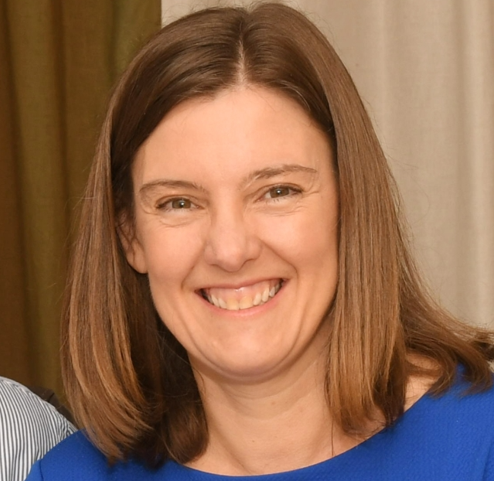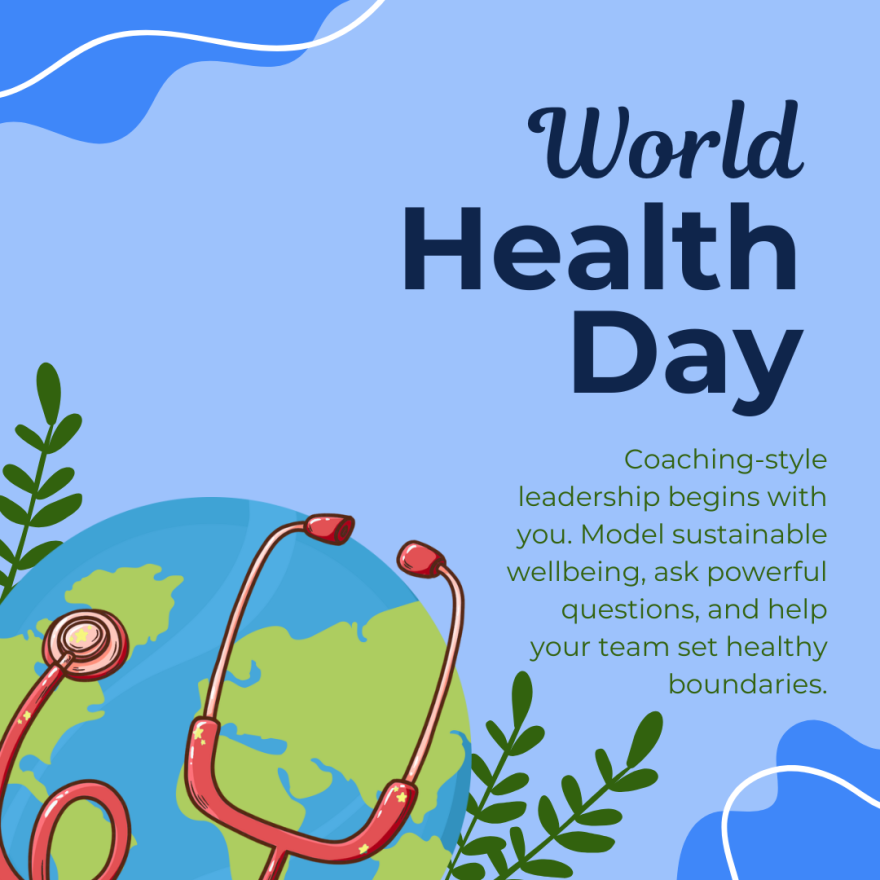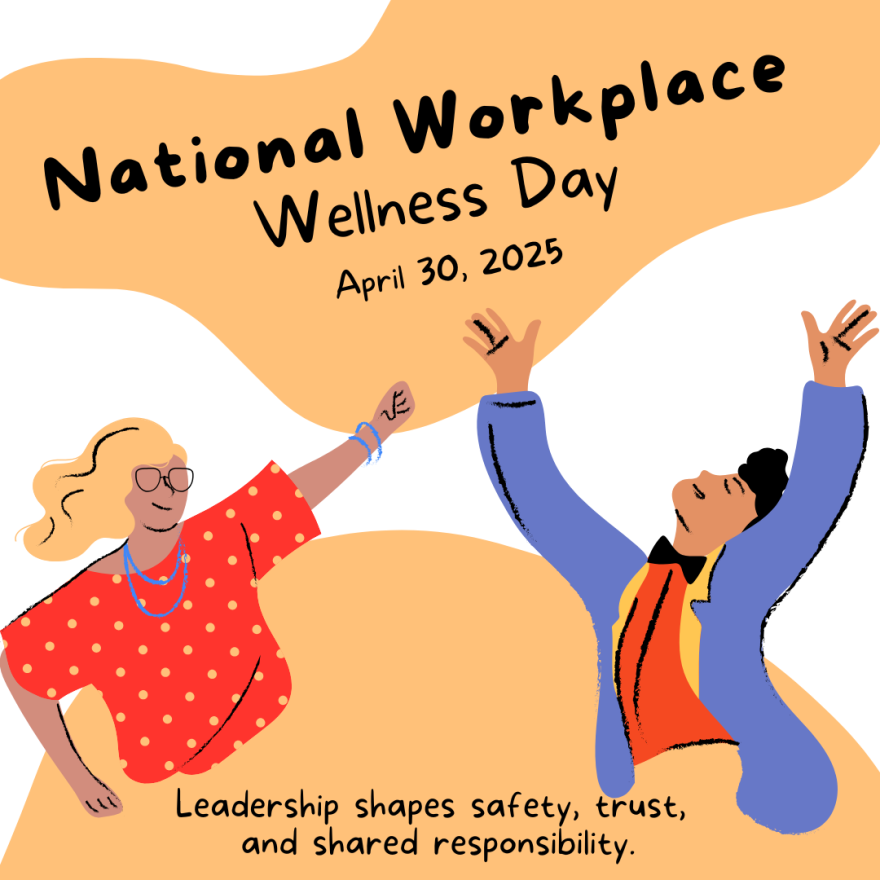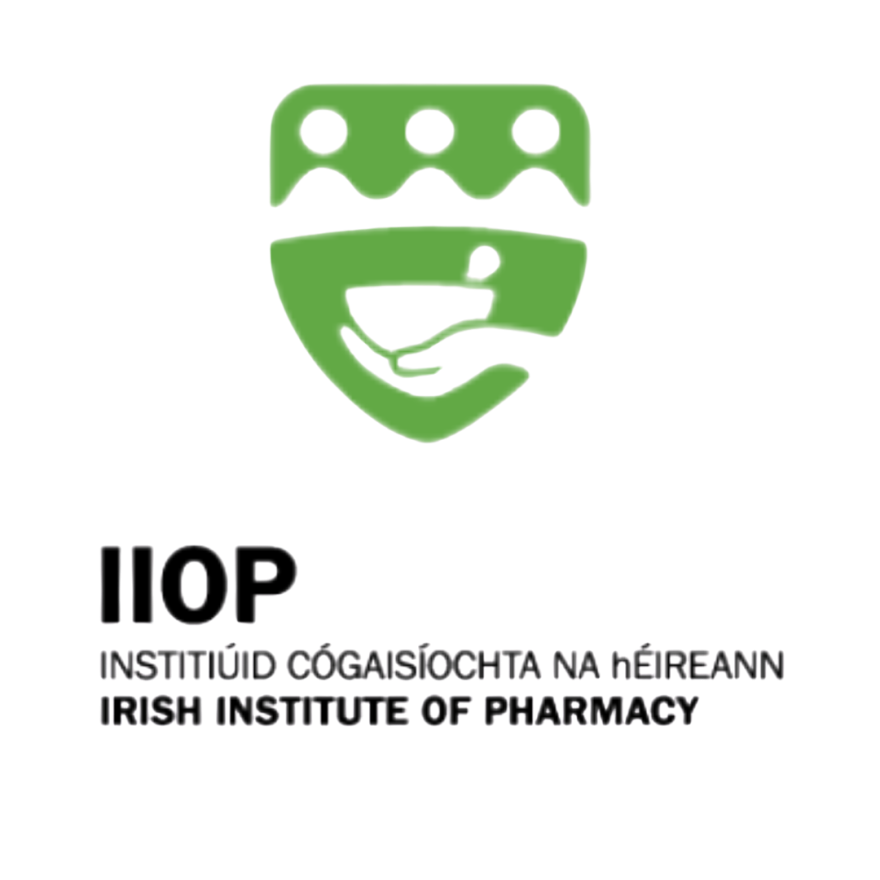Personal Note from Rachel

Greetings,
Welcome to our April edition of The Value of Positive Practice!
This month, we explore the coaching competency "Embodying a Coaching Mindset"—developing and maintaining an open, curious, flexible, and client-centred mindset.
This competency is a game-changer in today’s rapidly changing healthcare and business environments. It allows leaders and pharmacists to shift from reactive problem-solving to reflective, empowering conversations that build ownership, resilience, and growth.
Embodying a coaching mindset is transformational—not only for those working one-to-one with clients or patients but also for any leader who wants to inspire trust, create safe spaces for dialogue, and empower others to take responsibility for their growth. It helps us move away from micro-managing and over-functioning and toward creating the conditions for collaboration, confidence, and real behavioural change.
That’s why programmes like LCI's Diploma in Coaching for Leaders is more relevant than ever. Whether new to leadership or aiming to enhance your team’s performance, enrolling with Lead With Coaching Institute (LCI) gives you a unique opportunity to practise the mindset, not just study it. It’s where learning meets lived experience. Through peer-based exploration and real-time reflection, you'll develop the emotional agility, conversational skills, and inner clarity that coaching leadership demands.
In April, we also celebrate National Workplace Wellbeing Day, World Autism Awareness Day, and World Health Day—each a timely reminder of how much leadership matters in shaping inclusive, safe, and empowering environments.
What It Means to Embody a Coaching Mindset
To embody a coaching mindset means more than learning a new technique—it’s a whole-person, everyday practice. It includes:
🧠 Ongoing reflection and self-development
🌍 Being aware of cultural context and individual differences
🗧️ Deep listening and emotional regulation
💬 Recognising that others are resourceful and capable
🧒 Using your intuition and presence to serve—not lead—the conversation
According to the International Coaching Federation (ICF), embodying a coaching mindset involves cultivating qualities far beyond technique. It means consistently honouring the autonomy of others—acknowledging that clients are responsible for their own choices and trusting their inner resourcefulness. It requires a commitment to continuous learning and the humility to engage in reflective practice, which enhances self-awareness and insight over time.
A coaching mindset also includes an openness to cultural and contextual influences, recognising that their environments shape self and others. This awareness fuels empathy and adaptability in leadership. Intuition becomes a trusted guide, not in place of evidence, but a complementary resource drawn from experience and attunement. Emotional regulation is vital, enabling leaders to remain centred in difficult conversations and to prepare mentally and emotionally for every interaction with presence and care. And crucially, it means knowing when to seek external support, whether through supervision, mentorship, or professional development.
These integrated behaviours help leaders create psychologically safe, collaborative environments. They cultivate resilience, clarity, and purpose for individuals and across teams and systems. That’s why Lead With Coaching offers a valuable opportunity to practise and embody these principles in community. Participants don’t just learn the what and why of coaching—they live it, reflect on it, and refine it in real-world leadership contexts. It’s a transformative path for anyone ready to lead with intention, insight, and impact.
🗓️ Coaching in Real Life: April Awareness Days

World Autism Awareness Day 🧩 2 April
Theme: “Neurodiversity: A Strength Not a Struggle”
Each year, World Autism Awareness Day encourages us to reflect on the unique strengths and contributions of neurodiverse individuals—whether in our personal lives, teams, or communities. This year's theme reminds us that neurodiversity is not a limitation, but a powerful aspect of human diversity.
As leaders and healthcare professionals, embracing a coaching mindset equips us to foster inclusive, respectful environments where all voices are heard and valued. Rather than approaching communication and collaboration with a one-size-fits-all model, we are invited to remain open and curious about how each person thinks, feels, and works best.
A coaching mindset helps us move beyond assumptions. It empowers us to listen deeply, ask thoughtful questions, and honour how individuals process information, make decisions, and contribute meaningfully. This is especially important in pharmacy and healthcare settings, where clarity, empathy, and adaptability can shape workplace wellbeing and patient care.
When we consciously create space for neurodiverse strengths in our team culture, we become more inclusive, innovative, collaborative, and resilient. Let’s challenge ourselves to look beyond ‘fitting in’ and start championing what makes each of us unique.
💡 What one change could you make this week to better support neurodiverse strengths in your workplace or community?
How can you create more space for neurodiverse strengths in your team or practice?

World Health Day 🦠 7 April
Theme: “My Health, My Right”
World Health Day invites us to recognise that health is not just a personal priority—it is a fundamental human right. For those of us in healthcare leadership roles, this day reminders us of the responsibility we carry to model and promote wellbeing at every level of practice.
Adopting a coaching mindset allows leaders to prioritise their own wellbeing while supporting others to do the same. Instead of defaulting to stress-fuelled productivity, coaching-style leadership encourages us to reflect on what truly matters, to establish meaningful boundaries, and to empower our teams to take ownership of their own health.
When we embody this mindset, we shift the culture from overwork and burnout to one of sustainable performance and psychological safety. We become more aware of how our choices impact our health—and how our leadership style shapes the wellbeing of those around us.
The coaching mindset helps us ask the powerful, and sometimes difficult, questions:
What needs to change so I can lead from a place of balance?
How can I better support my team’s wellbeing without compromising my own?
💡 What can you say “no” to this week to protect your energy, clarity, and long-term health?*
What can you say “no” to this week to protect your energy and clarity?

Ireland’s National Workplace Wellbeing Day 🏢 30 April
This day is more than a calendar event—it’s an opportunity to reflect on the culture we create within our workplaces. Leadership directly affects any professional environment's tone, energy, and safety. When we lead with a coaching mindset, we’re not just influencing tasks or outcomes—we’re shaping how people feel at work.
Coaching-style leadership places psychological safety, collaboration, and shared responsibility at the heart of organisational success. It encourages us to see our teams not as problems to fix, but as people to empower. By fostering deeper listening, trust, and mutual accountability, leaders help others feel seen, heard, and valued. World Health Day invites us to recognise that health is not just a personal priority—it is a fundamental human right. For those of us in healthcare leadership roles, this day serves as a reminder of the responsibility we carry to model and promote wellbeing at every level of practice.
Adopting a coaching mindset allows leaders to prioritise their own well-being while supporting others to do the same. Instead of defaulting to stress-fuelled productivity, coaching-style leadership encourages us to reflect on what truly matters, establish meaningful boundaries, and empower our teams to take ownership of their own health.
When we embody this mindset, we shift the culture from overwork and burnout to sustainable performance and psychological safety. We become more aware of how our choices impact our health and how our leadership style shapes the well-being of those around us.
The coaching mindset helps us ask powerful and sometimes difficult questions:
What needs to change so I can lead from a place of balance? How can I better support my team’s well-being without compromising my own?
💡 What can you say “no” to this week to protect your energy, clarity, and long-term health?* What can you say “no” to this week to protect your energy and clarity? Pharmacists and healthcare professionals are often at the frontline of stress and decision fatigue. Yet, when we embed a coaching culture, we help create workplaces where people can speak openly, take initiative, and support one another’s growth—rather than simply survive the workload.
As we mark this national day, let’s ask ourselves: What practices in our daily leadership encourage wellbeing? Where might we shift our tone, pace, or structure to support healthier, more connected teams?
💡 What one shift could you make to increase connection and trust on your team today?* What one shift could you make to increase connection and trust on your team?
🤝 Celebrating Mentorship & Mutual Growth

As the IIOP Peer Mentoring Programme draws to a close, I’ve been reflecting on the joy of participating—not just as a mentor, but as a partner in a shared growth journey.
Over the past few months, I’ve had the privilege of mentoring a hospital pharmacist. The experience was grounded in trust, curiosity, and mutual respect—core values of a coaching leadership style.
What stood out?
Mentoring is a two-way street. I learned just as much as I offered—from a new perspective, a different sector, and the beauty of intentional listening and reflective dialogue.
🪴 As leaders, when we normalise mentorship and coaching, we nurture our growth too. Let’s keep creating these spaces for each other and the next generation of pharmacy professionals.
To apply for the next pharmacist peer mentoring round as a mentee, CLICK HERE. Applications are open until April 27th.
🌍 Reflections from the Regional Leaders Programme Finale

Serving as a coach for the 2024/2025 Regional Leaders Programme, a partnership between Waterford Chamber, Skillnet, and ICF Ireland, was a privilege.
My coachee, Roisín Finnigan, shared how coaching helped her cut through the noise, focus on what matters, and re-energise her leadership.
Keynote speaker Dr Sinéad Kane offered a powerful metaphor in describing her experience as a blind ultramarathon runner:
“A guide runner doesn’t lead the race—they create the rhythm and space for another to find their stride.”
That’s precisely what coaching-style leadership does. It creates conditions for clarity, confidence, and progress.
As coaching becomes more common in leadership development, it’s essential to clarify its unique value, not as advice-giving or mentoring but as a reflective, professional space that supports lasting transformation.
This programme reaffirmed the ripple effect of leading with coaching: one conversation at a time.
🚀 Lead With Coaching: Programmes That Help You Embody a Coaching Mindset

Embodying a coaching mindset is not just a skill—it's a leadership philosophy that fosters clarity, resilience, and deeper connection. Whether you’re new to coaching or looking to elevate your leadership, our Lead With Coaching (LCI) Programmes and the LCI Diploma in Coaching for Leaders offer two dynamic ways to fully embody this transformative approach.
LCI's Diploma in Coaching for Leaders is ideal for leaders, pharmacists, and teams ready to integrate coaching into everyday leadership. Through peer-based learning and real-time practice, you’ll:
-
Practice reflective leadership in a supported environment.
-
Engage in cross-sector learning and connection.
-
Gain tools to embed coaching principles into team culture
-
Explore the real challenges of communication, mindset, and accountability
This is where theory meets lived experience. You’ll learn to hold space, ask better questions, and cultivate ownership in those you lead. 📆 We are enrolling now for our 2025 online and in-person cohorts. Our Foundation online cohort runs in May and our in-person cohort runs in September - with Part 2 of our LCI Coaching Diploma for Leaders running in October.
The LCI Diploma in Coaching for Leaders offers a structured, in-depth development pathway if you're ready to take your coaching leadership even further. It will help you:
✨ Lead with clarity, empathy, and structure
💼 Empower team ownership and accountability
🎯 Reconnect with purpose and possibility
💡 Build sustainable growth through coaching conversations
Why now?
🗓️ May 12th is the only online cohort for 2025 and 10th Sept is our only in-person cohort for 2025
🎁 Early bird pricing + 6-month Inner Circle bonus available now
👥 Limited to 20 cross-industry leaders
🔗 Explore the LCI Diploma and Lead With Coaching Programmes
🧰 Other Ways We Can Work Together (If another step feels more aligned at this time…)
💌 I’d Love to Hear From You
When I sit down to write these newsletters, it’s with you in mind—but it can sometimes feel like a one-way conversation.
If you’ve found value in these reflections, tools, or stories, would you take a moment to share your experience?
✨ What’s one insight, tool, or idea that’s been helpful for you so far this year?
✨ What’s one small change that could make this newsletter even more relevant or valuable for you?
I’d genuinely love to hear. Just hit reply and let me know what’s landing—and what you'd love more of.
🔮 Coming in May: Establishing and Maintaining Agreements. Have you ever been uncertain about your own or your clients’ expectations? Next month, we’ll explore the core competency of Establishing and Maintaining Agreements in the ICF.
This competency is about more than setting ground rules. It’s about co-creating clarity—from defining scope of practice, what coaching is (and isn’t) to setting shared goals, navigating confidentiality, and managing the structure and flow of each session. Clear agreements are foundational to a trusting, productive coaching relationship—and a powerful leadership approach.
We’ll explore how this principle fosters shared ownership, avoids misunderstandings, and creates a substantial container for transformation.
In May, we also celebrate International Coaching Week (ICF), the National Pharmacy Conference (IPU) and the National Pharmacy Excellence Awards (IPN).
Until then, thank you for being part of this journey.
Warmest wishes,
Rachel
The Pharmacist Coach
Director of Education, Lead With Coaching Institute
Also, not sure what kind of support would help most right now? Email me at rachel@racheldungan.com, and we’ll figure it out together.
Subscribe on LinkedIn
|